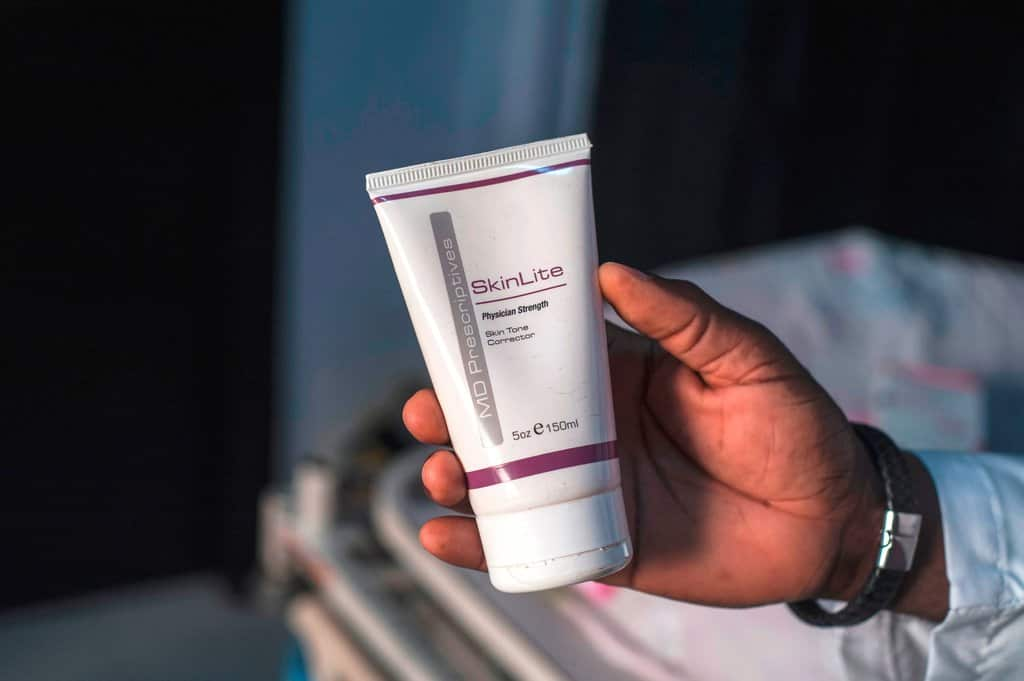Pointing to harmful health effects, Rwanda has begun a crackdown to enforce its ban on bleaching agents, especially hydroquinone and mercury, that are found in cosmetics.
“We have been conducting inspections on cosmetics to ensure that they are hydroquinone- and mercury-free,” Simeon Kwizera, a spokesman for the Rwanda Standards Board, said in a phone interview Wednesday. “We are seizing some cosmetics, inspecting the shops and markets and advising the sellers.”
In Rwanda and other countries, people use cosmetics to bleach their skin because they feel that lighter skin is the ideal or indicates higher social status. Dark-skinned people do not necessarily see people like them in billboards, movies and advertisements, and dark-skinned celebrities sometimes grow more popular after bleaching their skin.

This all makes it easier to believe that darker skin is of lesser value or is not considered as beautiful as lighter skin. Those who do not see themselves in their societies aim to be seen by bleaching their skin.
The skin-bleaching industry is fueled not only by African countries but also by nations including India, China, South Korea and many countries in the Caribbean.
According to the World Health Organization, 61 per cent of the dermatological market in India consists of skin-lightening products. In Nigeria, 77 per cent of women use skin-lightening products regularly, and in South Africa, 59 per cent do so, the health agency found.
Using these products often requires exposure to hydroquinone and mercury, which are the main ingredients in most skin-lightening products and disrupt or suppress the production of melanin, said Dr Carlos Charles, a dermatologist and the founder of Derma di Colore, a practice in New York.
Of the two, mercury is more dangerous. It can cause kidney damage and increase the risk of cancer, Dr Charles said, and it is also known to cause rashes, scarring, anxiety, depression, psychosis and peripheral neuropathy, as well as reduce the skin’s resistance to bacterial and fungal infections, according to the World Health Organisation.
Hydroquinone can also increase the risk of cancer, as well as cause hormone imbalances, Dr Charles said.
“You can run into issues when you use it in a very high concentration,” he said. “It can cause a rash. What is more serious is if it’s used at a high concentration for an extended period of time — it can cause ochronosis, where you can get this paradoxical darkening of the skin.”
Some countries have banned skin-whitening creams altogether, or the use of mercury and hydroquinone in them.
In 1983, South Africa banned all but 2 per cent hydroquinone creams. In 2015, Ivory Coast banned all skin-whitening creams, and in 2016, Ghana began a ban on certain skin-whitening products that include hydroquinone. Rwanda instituted its ban in 2013 but had not strictly enforced it until November, when the crackdown began.
To get around these bans, some cosmetics manufacturers, eyeing the opportunities for profit, change the name of the agents in order to sell their products, according to Mr Kwizera.
“Some manufacturers cheat the customers,” he said, by doing things like creating numerous fake brands. “They forge more than 80 names just to change the name.”
Mr Kwizera said he believed products with hydroquinone were mainly being smuggled into Rwanda.
The country’s president, Paul Kagame, endorsed the crackdown on Twitter, calling skin bleaching unhealthy.

